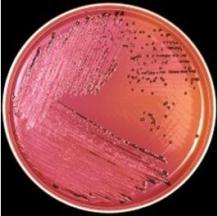Research: salmonella bacteria to kill cancer

Neil Forbes of the University of Massachusetts Amherst has received a 4-year grant of over US$1 mln from the National Institutes of Health to research killing cancer tumours with Salmonella bacteria.
Neil Forbes of the University of Massachusetts Amherst has received a 4-year grant of over US$1 mln from the National Institutes of Health to research killing cancer tumours with Salmonella bacteria.
"*" indicates required fields
Notifications
Your Privacy Matters
It's your legal right to choose which information a website may store and have access to. With your permission, we and our third-party partners (23) store and/or access information on a device, such as unique identifiers in cookies and browsing data to collect and process personal data.
We and our partners do the following data processing:
Store and/or access information on a device, Advertising based on limited data and advertising measurement, Personalised content, content measurement, audience research, and services development
If you accept any or all of these, you will have agreed to this website's use of cookies for these purposes. You may also choose to refuse consent, but certain personalized features of the site won't be available to you.